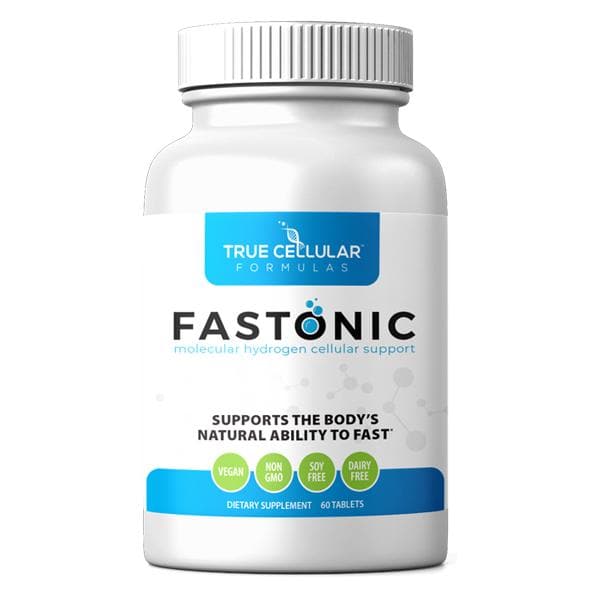As women age, maintaining health and vitality becomes increasingly important. When done correctly, Safe Fasting After 50 can offer a range of benefits, including detoxification, improved metabolic health, and enhanced mental clarity. However, for women over 50, it’s crucial to approach fasting with care to ensure that it supports overall well-being without compromising bone health or nutritional balance.
The Benefits of Fasting for Mature Women
- Detoxification: Our body’s natural detoxification processes can slow down as we age. Fasting helps by giving the digestive system a break, allowing the body to focus on eliminating toxins more effectively. This can lead to improved energy levels and overall wellness.
- Metabolic Health: Fasting has been shown to improve insulin sensitivity, which can help manage weight and reduce the risk of developing type 2 diabetes. Fasting can be a valuable tool in maintaining a healthy metabolism for women over 50, who may be more prone to metabolic changes due to hormonal shifts.
- Cognitive Clarity: Intermittent fasting can enhance mental clarity and focus, which is particularly beneficial as women age. The process of autophagy, where the body cleans out damaged cells, is promoted during fasting and can support brain health.
- Hormonal Balance: Fasting can help balance hormones that affect mood, energy levels, and sleep, particularly during and after menopause. This balance is key to maintaining a sense of well-being and vitality.
Key Precautions for Safe Fasting After 50
While fasting offers many benefits, certain precautions must be taken to ensure that it is done safely, particularly for women over 50.
- Start Slowly: If you’re new to fasting, start with shorter fasting periods, such as 12 hours overnight, gradually increasing the duration as your body adapts. This approach helps minimize potential stress on the body and allows you to find a sustainable routine.
- Prioritize Nutrient-Dense Foods: During non-fasting periods, focus on consuming a balanced diet rich in nutrients, particularly those that support bone health, such as calcium, vitamin D, and magnesium. Include plenty of leafy greens, fatty fish, nuts, seeds, and dairy or dairy alternatives.
- Monitor Bone Health: As women age, the risk of osteoporosis increases. It’s important to ensure that fasting does not lead to nutrient deficiencies that could compromise bone health. If dietary intake is insufficient, consider adding a high-quality bone support supplement, and discuss any concerns with your healthcare provider.
- Stay Hydrated: Fasting can sometimes lead to dehydration, especially if you’re not mindful of your water intake. Ensure you drink plenty of water, herbal teas, and broths during fasting periods to stay hydrated and support detoxification.
- Listen to Your Body: How your body responds to fasting. If you experience dizziness, fatigue, or any other concerning symptoms, it may be a sign that fasting is too intense or that nutritional adjustments are needed. It’s important to find a balance that feels right for you.
- Consult Your Healthcare Provider: Before starting any fasting regimen, especially if you have pre-existing health conditions or are taking medications, consult with your healthcare provider. They can offer personalized advice and help you develop a fasting plan that meets your health needs.
Supporting Bone Health During Fasting
Maintaining bone health is particularly important for women over 50, as the risk of osteoporosis increases with age. To support your bones during fasting:
- Include Bone-Building Nutrients: Ensure your diet provides adequate calcium, vitamin D, and magnesium. Sardines, leafy greens, fortified foods, and nuts are excellent sources.
- Strength Training: To strengthen bones and muscles, incorporate weight-bearing exercises like walking, resistance training, and yoga into your routine.
- Consider Supplements: If your diet doesn’t meet your nutritional needs, consider taking supplements designed to support bone health, such as calcium, vitamin D, and collagen peptides.
Conclusion
Fasting can be a powerful tool for detoxification and overall health, especially for women over 50. By approaching fasting with care—focusing on nutritional balance, hydration, and bone health—you can safely reap the benefits while supporting your body’s changing needs. Always listen to your body and consult a healthcare professional to ensure that fasting is a positive and sustainable part of your wellness routine.
Fastonic
 Fastonic Cellular Molecular Hydrogen Supplement Fastonic cellular molecular hydrogen is one of our fasting support favorites. This product provides H2 (molecular hydrogen) to the body. This molecule provides the body with tons of benefits. Fastonic molecular hydrogen supplement can promote a healthy balance of oxidative stress, neutralizing only the most harmful free radical in water. It supports glucose homeostasis, decreases appetite, and stabilizes fat metabolism. It helps to promote the healthy functioning of the inflammation system. Fastonic molecular hydrogen supplement also supports cognitive function allowing for increased mental clarity, while reducing fatigue that is usually associated with fasting. Increased healing of soft tissue injuries and improved skin health may also be experienced. Get Fastonic H2 supplement now.
Fastonic Cellular Molecular Hydrogen Supplement Fastonic cellular molecular hydrogen is one of our fasting support favorites. This product provides H2 (molecular hydrogen) to the body. This molecule provides the body with tons of benefits. Fastonic molecular hydrogen supplement can promote a healthy balance of oxidative stress, neutralizing only the most harmful free radical in water. It supports glucose homeostasis, decreases appetite, and stabilizes fat metabolism. It helps to promote the healthy functioning of the inflammation system. Fastonic molecular hydrogen supplement also supports cognitive function allowing for increased mental clarity, while reducing fatigue that is usually associated with fasting. Increased healing of soft tissue injuries and improved skin health may also be experienced. Get Fastonic H2 supplement now.
References
- Masood, Wajeed, et al. “Ketogenic Diet.” StatPearls, StatPearls Publishing, 2024. PubMed.
- Erdélyi, Aliz, et al. “The Importance of Nutrition in Menopause and Perimenopause—A Review.” Nutrients, vol. 16, no. 1, Dec. 2023, p. 27. PubMed Central.
- Gudden, Jip, et al. “The Effects of Intermittent Fasting on Brain and Cognitive Function.” Nutrients, vol. 13, no. 9, Sept. 2021, p. 3166. PubMed Central.
- Peacock, Kimberly, et al. “Menopause.” StatPearls, StatPearls Publishing, 2024. PubMed.
- Malinowski, Bartosz, et al. “Intermittent Fasting in Cardiovascular Disorders—An Overview.” Nutrients, vol. 11, no. 3, Mar. 2019, p. 673. PubMed Central.
- Patterson, Ruth E., et al. “INTERMITTENT FASTING AND HUMAN METABOLIC HEALTH.” Journal of the Academy of Nutrition and Dietetics, vol. 115, no. 8, Aug. 2015, pp. 1203–12. PubMed Central.


